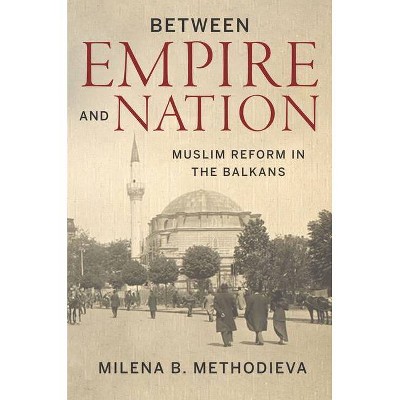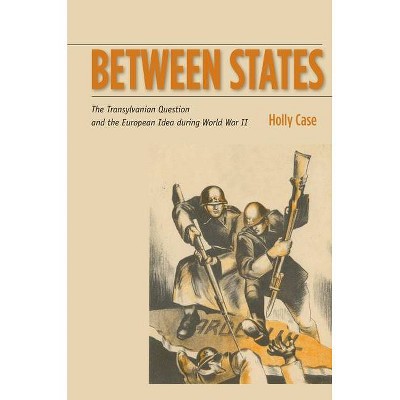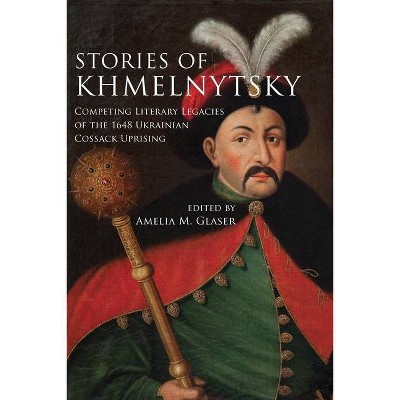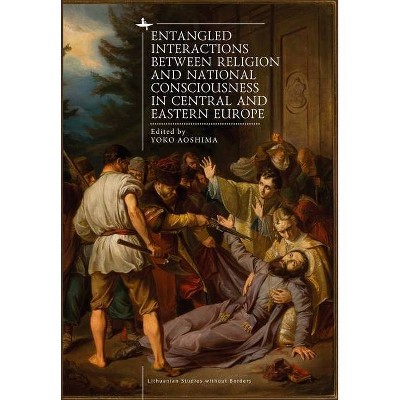Nationalists Who Feared the Nation - (Stanford Studies on Central and Eastern Europe) by Dominique Kirchner Reill (Hardcover)
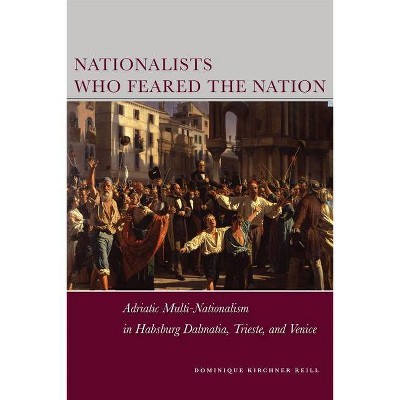
Similar Products
Products of same category from the store
AllProduct info
<p/><br></br><p><b> About the Book </b></p></br></br>A history of the efforts of community leaders and intellectuals in Venice, Trieste, and Dalmatia to create a multi-national region along the shores of the Adriatic Sea, based on a nationalism that valued diversity, not homogeneity.<p/><br></br><p><b> Book Synopsis </b></p></br></br>A history of the efforts of community leaders and intellectuals in Venice, Trieste, and Dalmatia to create a multi-national region along the shores of the Adriatic Sea, based on a nationalism that valued diversity, not homogeneity.<p/><br></br><p><b> Review Quotes </b></p></br></br><br>Bridging the two shores of the Adriatic, [Reill's] study establishes a comparative framework within which she relentlessly questions what the nation meant to nationalist thinkers in these years, how and why those ideas differed, and how and why they evolved. This beautifully written and deeply researched study broadens our understanding of the Risorgimento and offers an essential point of reference for anyone interested in the diversity of European nationalism and nationalist thought in the first half of the nineteenth century.--John Davis "<i>English Historical Review</i>"<br><br>Dominique Kirchner Reill has written a well-researched book. . . [W]ell worth reading for its lively study of interesting personalities and situations, attractively evoked.--Robin Okey "<i>Slavic Review</i>"<br><br>Dominique Reill presents an extremely sophisticated and subtle theoretical argument about the relationship between nationalism and pluralism, and does so in a way that is both novel and clear. One need not be independently interested in the Adriatic (as I, admittedly, happen to be) in order to recognize the importance of this manuscript's contribution to the study of nationalism.--Alison Frank "Harvard University"<br><br>In <i>Nationalists Who Feared the Nation</i>, Dominique Kirchner Reill seeks to 'recover the forgotten realities and lost possibilities of nationalism' by questioning the commonly held scholarly understanding of nationalism as a concept intended to enforce homogeneity and eliminate, through a variety of means, diversity . . . [Reill's] book has recovered the lost voices of Adriatic multi-nationalists who proposed alternative and less violent paths towards nationhood, thus rescuing them from the embrace of oversimplified nationalist narratives in which they figure as some of the first fighters for mono-national causes.--Filip Erdeljac "<i>Nationalities Papers</i>"<br><br>Reill has created a thought-provoking work that sheds light on a corner of Europe that deserves more scholarly attention.--Manuel Bollag "<i>European Review of History</i>"<br><br>Reill's impressive first book exemplifies the best of the historian's craft. As she diligently scours still neglected regional archives throughout the northern Adriatic, the book interweaves jewels of insight into a finely crafted narrative about the intellectual journeys of six natives of the northern Adriatic. By tenderly easing her insights gained from inspecting private correspondences, newspaper articles, and an occasional government document into a lucidly presented story, this complex book is as much engaging as revelatory. In this respect, I found myself thoroughly drawn to this study meshed together by a talented historian who uses disparate sources to make compelling arguments about an often-neglected part of the Habsburg Empire. . . . Reill is an excellent scholar whose work is both invigorating and original. I, for one, cannot wait for her next book.--Isa Blumi "<i>H-Net</i>"<br><br>Set against the backdrop of 19th-century nationalism, this insightful and deeply researched study examines the careers and programs of six largely forgotten individuals who sought multinational solutions for the areas of Venice, Trieste, and Habsburg Dalmatia. . . . Highly Recommended.--P. W. Knoll "<i>CHOICE</i>"<br><br>The book is an impressive example of socially embedded intellectual history . . . An impressive example of how historians can productively balance empathy and critique, and it is a welcome addition to the scholarship on nationalism in modern Europe.--James Bjork "<i>American Historical Review</i>"<br><br>The recent publication of Dominique Reill's monograph on Adriatic nationalism has served to complicate still further our understanding of the cultural definition of the nation in the Risorgimento. In this tightly focused and elegantly written book Reill discusses the concept of nation developed by a group of Dalmatian intellectuals, whose acknowledged leader and source of inspiration was the famous Niccolo Tommaseo.--<i>Past and Present</i><br><br>This lucid book offers readers a topic that has not emerged so far in historiography. The author dedicates special attention to going beyond the common clichés and usual, stereotyped mental patterns that are often present not only in individual national and nationalist narration, but also in historiographical production. By explaining Adriatic multinationalism, Reill's book has, as any good hisotriographical work does, opened new questions.--Borut Klabjan "<i>Austrian History Yearbook</i>"<br><br>Through the analysis of an impressive array of sources, Reill deftly demonstrates the fluidity of nationalist ideas and the limitations of concentrating on aspects of the development of the 'one nation, one state' model that emerged as predominant in the latter half of the nineteenth century . . . Reill's greatest contribution lies in her ability to uncover the lost voices of the nineteenth-century Adriatic.--Maura Hametz "<i>Journal of Modern Italian Studies</i>"<br><br>Tightly analyzed, engagingly written, based on a wealth of primary and secondary sources, and path-breaking in its unique perspective on nationalist movements in the first half of the 19th century.--<i>Southern Historical Association</i><br><p/><br></br><p><b> About the Author </b></p></br></br>Dominique Kirchner Reill is Associate Professor of Modern European History at the University of Miami.
Price History
Price Archive shows prices from various stores, lets you see history and find the cheapest. There is no actual sale on the website. For all support, inquiry and suggestion messagescommunication@pricearchive.us
